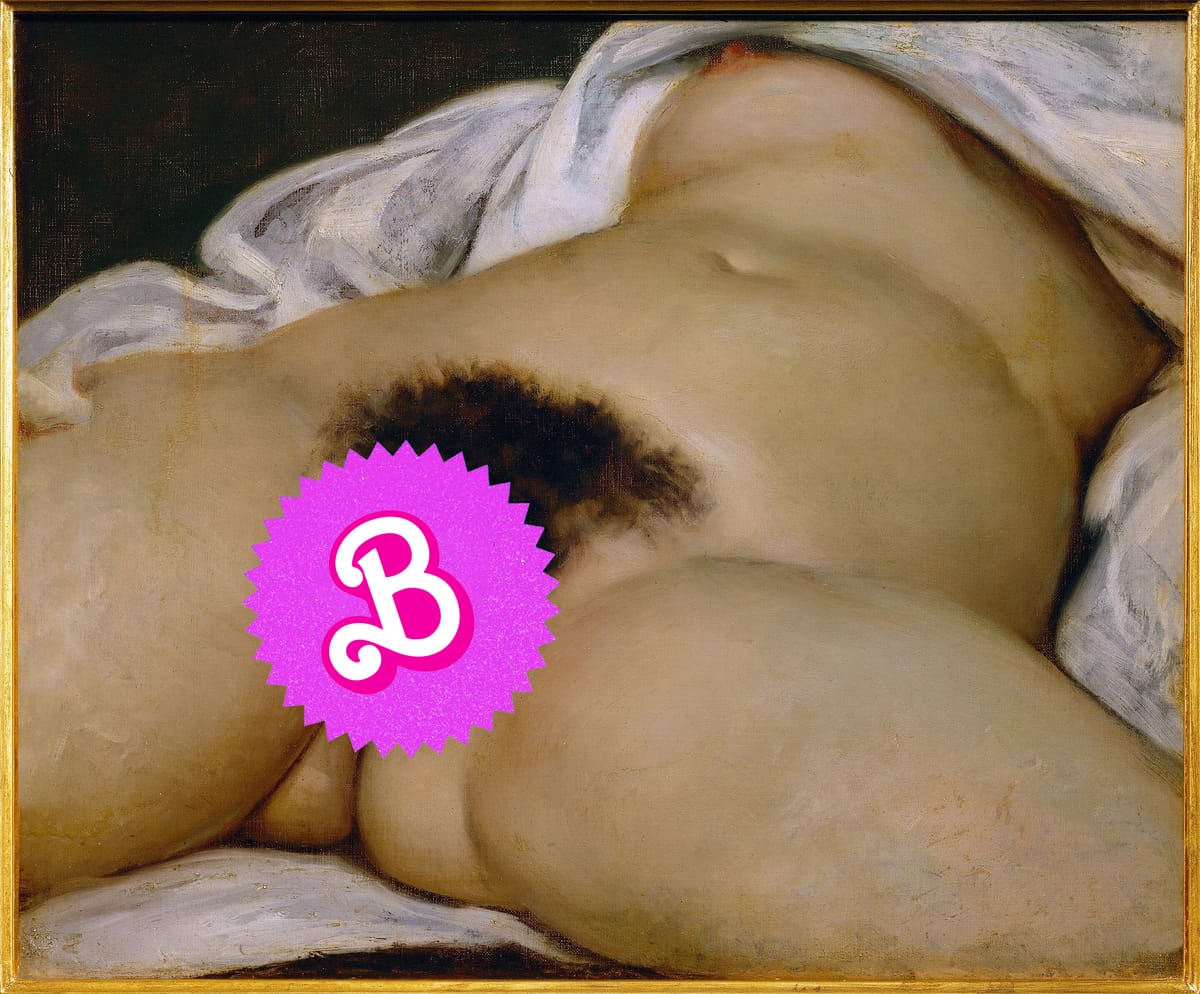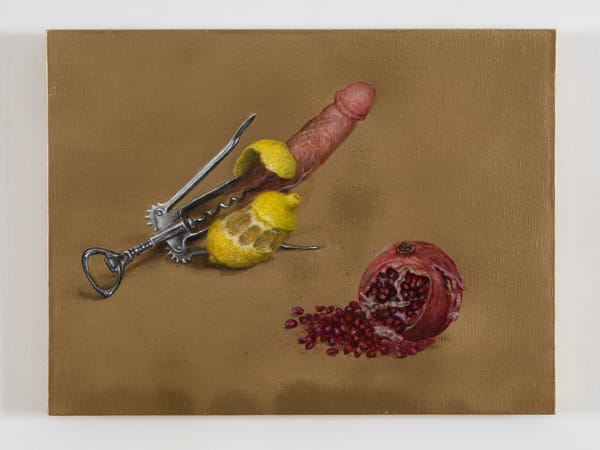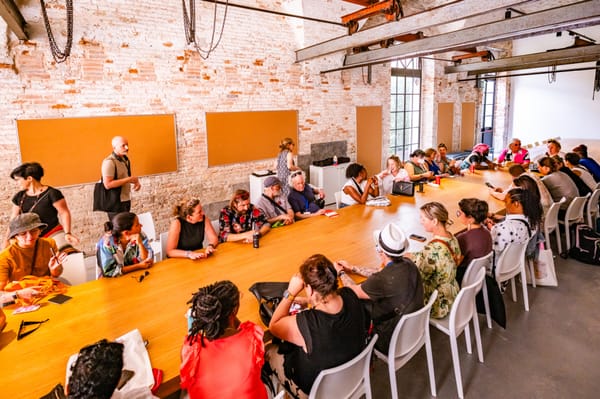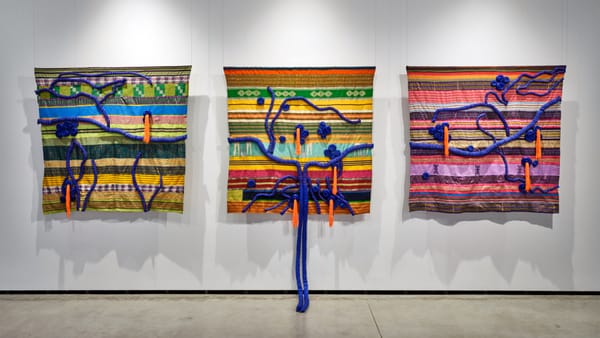Tagging “Me Too” on a Courbet Is Not the Feminism We Need
Deborah De Robertis’s protest performance signifies precisely what is wrong with current feminist discourse.

On May 6, two feminist activists entered Centre Pompidou-Metz in France and tagged Gustave Coubert’s 1866 work “The Origin of the World” with the “Me Too” slogan. Artist Deborah De Robertis claimed responsibility for the action, saying her intention was to “call on all women, with or without vulvas, all intersex, trans and non-binary people, and all underrepresented people — whether artists, assistants or interns in the art world — to dare to express yourself.”
This protest may have been intended as an empowering act, but all I see is a borrowed tagline on a work of art and further evidence that mainstream feminism is in its flop era.
The #MeToo movement began at the height of feminism’s fourth wave; ignited by activist Tarana Burke, it raised awareness about rampant sexual abuse. Originally, the phrase brought attention to the gendered violence experienced by women of color, but its definition expanded in 2017 to target sexual abuse in Hollywood and many other industries. Given the movement’s history, tagging Courbet’s painting of an unknown model’s vulva with "ME TOO" seems a disjointed move that disregards the consent of the subject. It’s not that the sentiment is entirely meaningless, but by disseminating it so baselessly without correct context, the gesture loses meaning.
Feminism seems to be suffering from short-term memory loss. These days, we are overrun with vapid bids for empowerment: TikTok users speak of carrying out acts of microfeminism such as naming a woman before a male colleague, or using “Ms.” instead of “Miss,” a practice with a long history that is limited to corporate settings with little actual impact. For a time, online discourse was focused on insisting that Barbie was snubbed at the Oscars when the film actually received eight nominations. These are just two of mainstream, online feminism’s current battles, which, if you had your blinders on, might lead you to believe there are no larger injustices inflicted upon women in the world today than Margot Robbie not receiving her flowers.
In her 2023 book Collapse Feminism: The Online Battle for Feminism’s Future, cultural critic Alice Cappelle questions whether we have ever moved past the fourth wave — of which the Me Too movement was a pivotal part — as there is little evidence to suggest feminism’s progression since. If there is a current wave, it's more like a puddle licking at our ankles, a shallow accumulation of feminist raindrops focusing purely on popular culture and making safe ripples within the public sphere.
“The Origin of the World” has an erotic history, created by Courbet for a wealthy benefactor’s private collection. But as much as it is meant to arouse, it also contains its own arousal: Beneath the bedsheet an erect nipple peeks out, and the figure’s labia are flushed with pleasure. There is no violence in this image that ties it to the Me Too movement. In fact, the painter's refusal to mythologize the vulva and the decision to center it in the frame while naming it as grandly as he does evinces his reverence.
Given this context, De Robertis’s act of protest signifies precisely what is wrong with current feminist discourse. It seems as if the literal has taken hold of the supposed feminist hive mind, and no deeper interpretation can be warranted. When the film Poor Things hit the cinemas last year, the Frankenstein-like plot, in which a child’s brain is resurrected in the body of her mother, was taken literally, with backlash scolding the film for featuring a baby having sex (the baby in question being the 35-year-old Emma Stone). Audiences and critics cried misogynistic wolf because the director is a man, and De Robertis has done much the same. In both cases, it matters not that women’s pleasure is at the heart of the frame, only who placed it there, denying women their agency.
Feminism today has become so deeply entwined with online conversations, diluting itself with such discourse that it seems to have forgotten there’s a whole world out there. A world where transphobic laws are being passed, abortion rights are being overturned, and Palestinians are facing genocidal violence. There are still grassroots organizations such as Sisters Uncut in the UK or the groups of Latin American feminists who fought anti-abortion laws. And of course there are great feminist artists such as Paula Olowska, Aria Dean and Danielle Brathwaite-Shirley who are creating original spaces that invite us to question society and our own values without hinging their works on a borrowed spotlight. But as long as we allow for the exhausted rhetorics to be continuously recycled we won’t get the new feminist wave we need.
To heavily paraphrase Antonio Gramsci: mainstream feminism is dying and the new wave struggles to be born.
Editor's Note, 5/17/2024, 6:20pm EDT: For further context, Deborah De Robertis has accused Bernard Marcadé, one of the curators of the exhibition, of sexually abusing her when she was 26 years old. Hyperallergic could not independently verify the allegations and has contacted Marcadé for comment.





